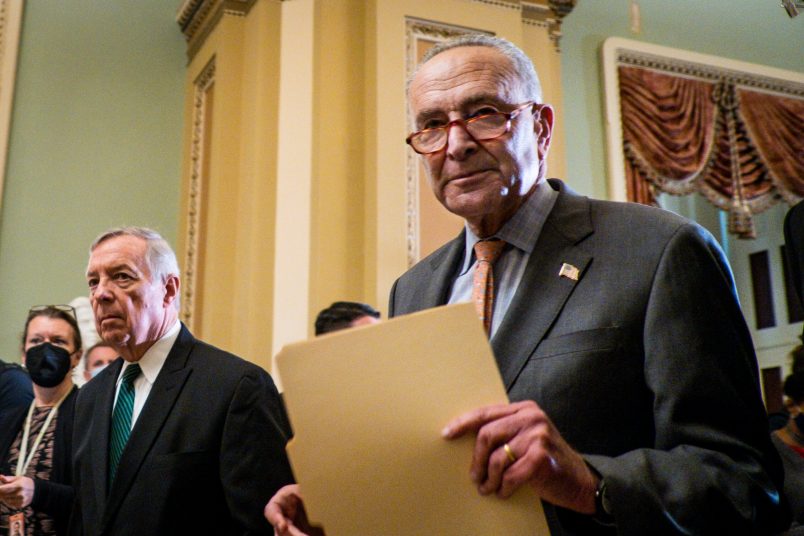Last week, the White House released a reconciliation framework that omitted any kind of provision that would allow Medicare to negotiate prescription drug costs. On Tuesday, Senate Democrats announced that they’d arrived at a deal.
“By empowering Medicare to directly negotiate prices in Part B and Part C, this deal will directly reduce out of pocket drug spending for millions of patients every time they visit the pharmacy or doctor,” Senate Majority Leader Chuck Schumer said Tuesday afternoon. “It will cap out of pocket spending at $2,000 per year — ending the days when a life-changing diagnosis could mean thousands upon thousands of dollars in new expenses. And it will reform the entire industry to end price gouging.”
While Schumer didn’t release all the details, the provision will certainly be less ambitious than what many Democrats initially wanted to do. It lets negotiations begin in 2023 on certain drugs, but includes patent exclusivity for most drugs for nine years before negotiations can start and exclusivity for 12 years on more advanced drugs, according to the New York Times.
“It’s not everything we all want,” Schumer said. “Many of us would have wanted to go much further, but it’s a big step in helping the American people deal with the price of drugs.”
It’s a drum Sen. Bernie Sanders (I-VT) has been beating for weeks: the pharmaceutical industry has incredibly deep pockets and has been spending heavily against any provision like this. That influence has successfully thwarted multiple presidents’ attempts to step in and stop Americans from paying such high prices for prescription drugs that they’re outliers in the western world.
That spending power has also been enough to outweigh the consistent bipartisan popularity of such a provision.
After the proposal was chopped from the White House’s reconciliation framework late last week, lawmakers rallied.
Sen. Ron Wyden (D-OR), one of the primary lawmakers helping sway the provision’s opponents, put his foot down, calling it “non-negotiable.”
“I’m telling colleagues: This is the time, the pledges have been made,” he told reporters. Wyden added that he’d been negotiating with Sen. Kyrsten Sinema (D-AZ), one of the provision’s biggest opponents, “nonstop.”
Those deliberations continued into the weekend, Sen. Amy Klobuchar (D-MN) told reporters today.
Sinema put out a statement during Schumer’s remarks saying she “welcomed the new agreement.”
Klobuchar added that now the focus is on having an “enforcement mechanism” for the provision, which is still being written.
Fighting for the survival of this provision was one of the last loose ends remaining as Democrats look to wrap up the reconciliation package.
But when asked if it was the final piece of the puzzle, Sen. Chris Murphy (D-CT) summed up the involuntary position of the entire Democratic party.
“I would talk to Senator Manchin about that,” he said.



